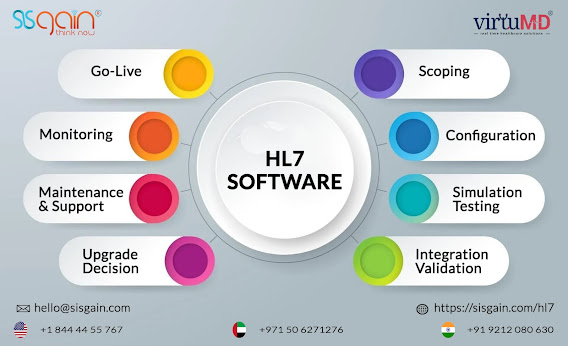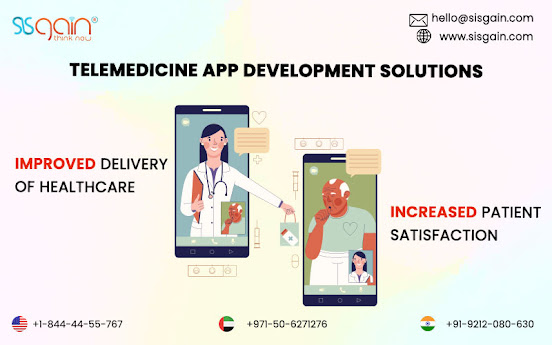The Role of Artificial Intelligence in Remote Patient Monitoring Software
Introduction:
The healthcare industry is undergoing a significant transformation with the advent of technology, and one of the key advancements is remote patient monitoring (RPM) software. This innovative solution allows healthcare providers to monitor patients' vital signs and health conditions from a distance, leading to improved patient care and outcomes. In this blog post, we will explore the crucial role of artificial intelligence (AI) in enhancing remote patient monitoring. We will also discuss the leading remote patient monitoring companies, the evolution of remote patient monitoring devices, and the significance of patient management software in this domain.
I. Understanding Remote Patient Monitoring
Remote patient monitoring is a method of healthcare delivery that enables healthcare providers to monitor patients' health conditions remotely. It involves the use of various devices and sensors to collect patient data, such as vital signs, activity levels, and medication adherence. This data is then transmitted to healthcare professionals who can analyze it and make informed decisions about patient care. The advantages of remote patient monitoring over traditional healthcare models include early detection of health issues, reduced hospital readmissions, and improved patient engagement.II. Evolution of Remote Patient Monitoring Devices
The evolution of remote patient monitoring devices has played a vital role in advancing healthcare. Traditional devices, such as blood pressure cuffs and glucose meters, have now been replaced by modern RPM devices that offer more comprehensive monitoring capabilities. Wearable sensors, for instance, can track a wide range of vital signs and activity levels continuously, providing real-time data to healthcare providers. Several leading remote patient monitoring companies, such as SISGAIN, have emerged as industry leaders in developing cutting-edge devices and software solutions.
III. AI-Powered Remote Patient Monitoring Software
Artificial intelligence has revolutionized various industries, and healthcare is no exception. AI has found its way into remote patient monitoring software, enhancing its capabilities and providing healthcare professionals with valuable insights. AI algorithms can analyze large volumes of patient data and detect patterns or anomalies that might indicate potential health issues. This enables healthcare providers to intervene proactively and deliver timely care. AI-powered RPM software offers numerous benefits, including improved accuracy, reduced manual workload, and personalized care plans for patients.
IV. Enhancing Patient Management with RPM Software
Effective patient management is crucial for providing high-quality care. Patient management software integrated with remote patient monitoring systems helps healthcare providers streamline their workflows and improve patient outcomes. This software enables healthcare professionals to access and manage patient data in a centralized manner, track medication adherence, schedule appointments, and communicate with patients remotely. By leveraging RPM software, healthcare providers can enhance patient engagement, deliver personalized care plans, and monitor patient progress more efficiently.
V. Leveraging AI for Advanced Analytics in Remote Patient Monitoring
Data analytics plays a pivotal role in remote patient monitoring, as it enables healthcare providers to derive meaningful insights from patient data. AI algorithms enhance these analytics capabilities by identifying patterns, trends, and correlations within the data. Predictive analytics powered by AI can help detect early warning signs of health issues, enabling proactive interventions. Real-time monitoring and alerts through AI algorithms ensure timely responses to critical situations. By harnessing AI in remote patient monitoring, healthcare providers can make data-driven decisions and improve patient outcomes.
VI. Improving Patient Engagement and Outcomes with AI
Patient engagement is vital for successful healthcare outcomes, and AI can significantly contribute to this area. RPM software integrated with AI enables personalized care plans and interventions for patients. By analyzing patient data, AI algorithms can identify individual needs, preferences, and risk factors, leading to tailored care plans. AI-powered chatbots and virtual assistants can provide patients with instant support and guidance, enhancing their engagement and overall experience. Ultimately, AI-driven remote patient monitoring contributes to better patient outcomes and improved quality of life.
VII. Addressing Security and Privacy Concerns
While the benefits of remote patient monitoring software are immense, it is crucial to address security and privacy concerns. Patient data collected through remote monitoring devices must be protected and comply with privacy regulations, such as the Health Insurance Portability and Accountability Act (HIPAA). RPM software should implement robust encryption methods and secure data transmission protocols to safeguard patient information. Additionally, access controls and authentication mechanisms must be in place to ensure that only authorized healthcare professionals can access and analyze patient data.
VIII. Case Studies: Successful Implementation of AI in RPM Software
Real-life examples of successful implementation of AI in remote patient monitoring software showcase its effectiveness in improving healthcare outcomes. Case studies can highlight instances where AI algorithms accurately predicted adverse events or alerted healthcare providers to potential health issues, allowing for timely interventions. These success stories emphasize the value of AI-powered remote patient monitoring in enhancing patient care and reducing healthcare costs.
IX. Future Trends and Innovations in Remote Patient Monitoring
The future of remote patient monitoring holds exciting possibilities. AI will continue to play a significant role in shaping the field, enabling more advanced analytics, personalized interventions, and predictive capabilities. Integration with telehealth platforms and virtual care innovations will enhance the accessibility and convenience of remote patient monitoring. Furthermore, wearable technology advancements, such as smartwatches and biosensors, will further improve the accuracy and ease of data collection for remote patient monitoring purposes.
Conclusion:
Artificial intelligence has emerged as a game-changer in remote patient monitoring software, revolutionizing healthcare delivery and patient care. By harnessing AI algorithms, remote patient monitoring companies like SISGAIN have enhanced the capabilities of their software solutions, providing healthcare professionals with invaluable insights and improving patient outcomes. The integration of AI in remote patient monitoring software enables advanced analytics, personalized care plans, and early detection of health issues. It also addresses security and privacy concerns through robust data protection measures. As we look to the future, AI-powered remote patient monitoring will continue to evolve, offering innovative solutions that transform the way healthcare is delivered and experienced.


